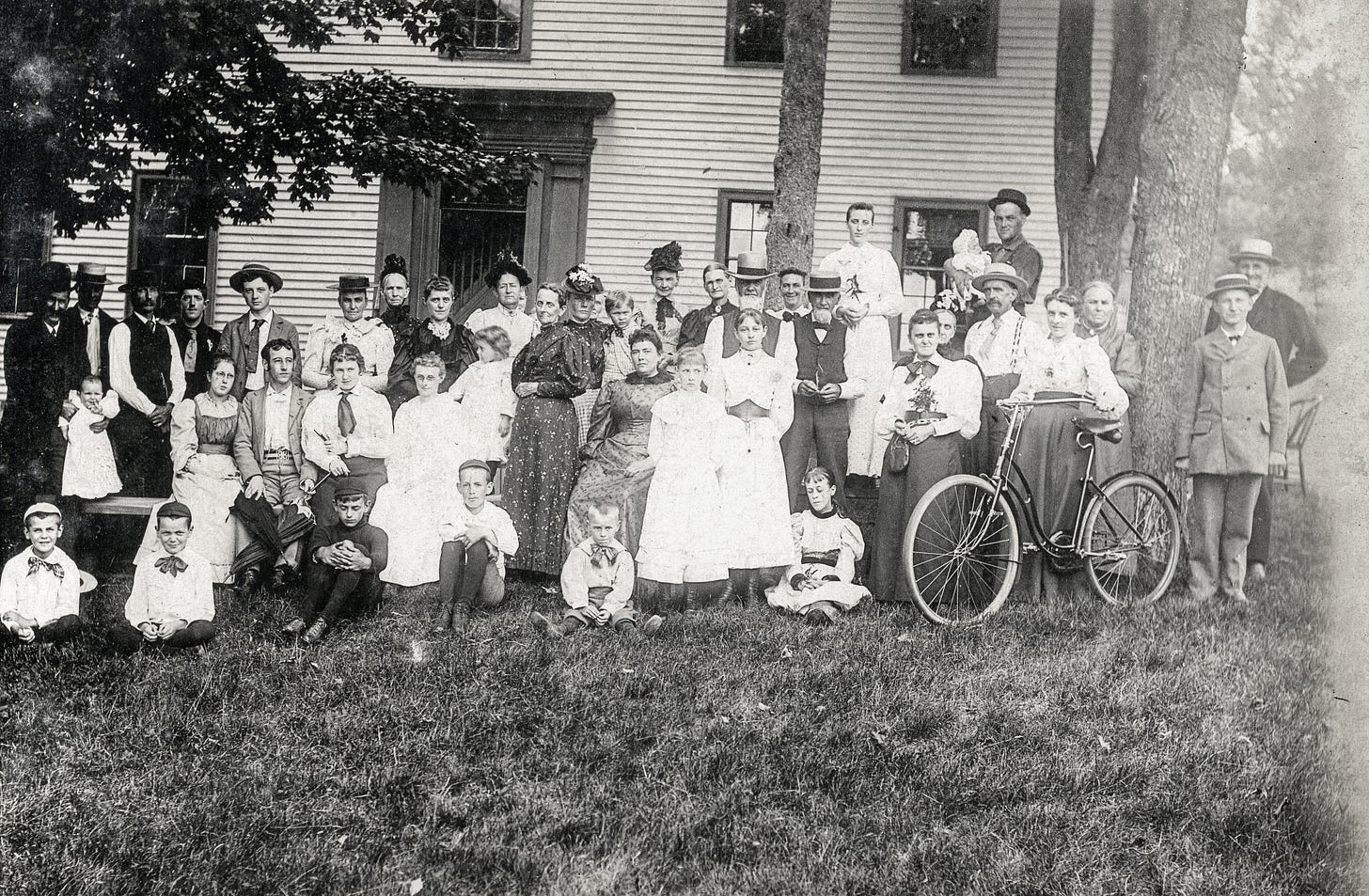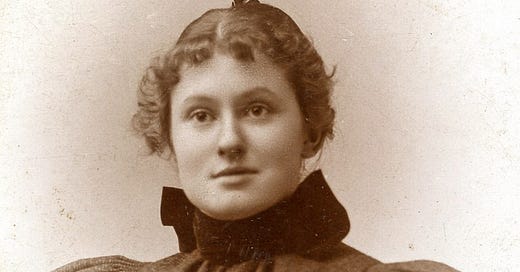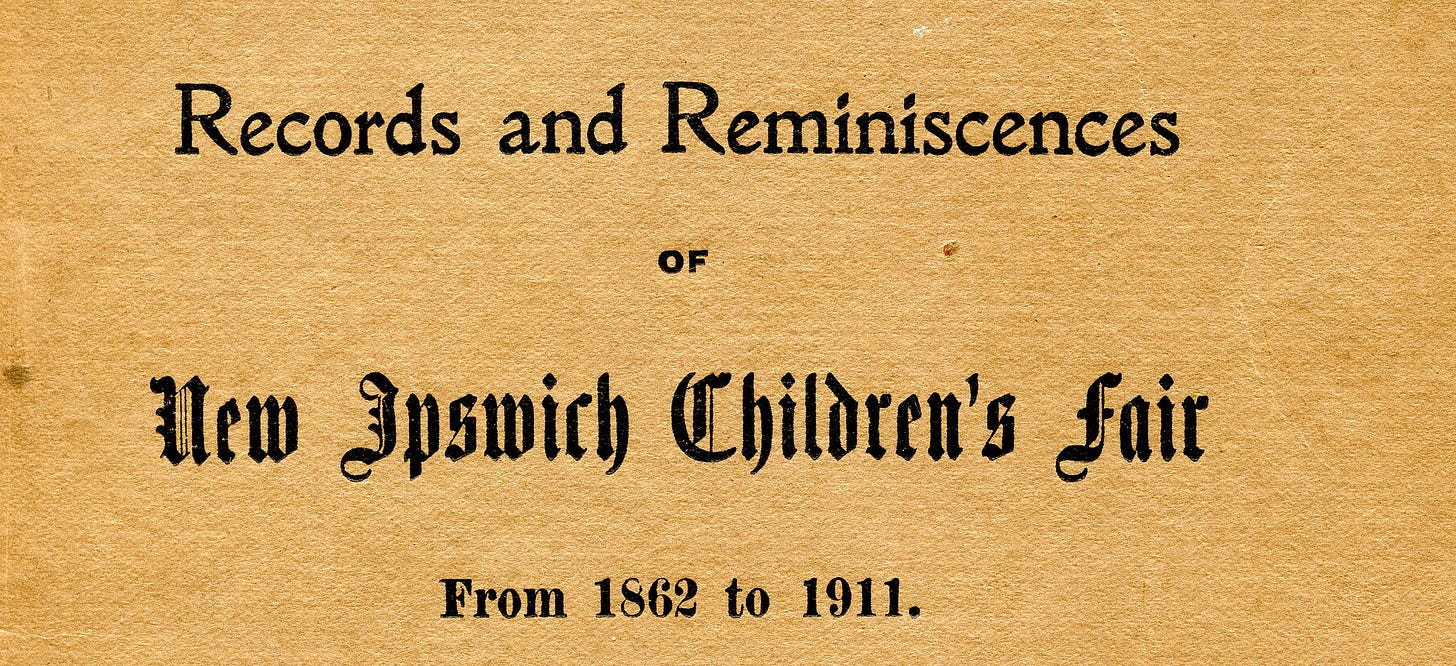Uncertainty about Winona
The society has two photos of Winona Coleman. One is labeled Winona Russell Coleman and one is labeled Winona Taylor Coleman. She is not listed in the History of New Ipswich. One of the challenges of research.
Locke House Picnic
Regardless of the naming confusion, she managed to be invited to the picnic at Locke House.

On this day - July 18, 1908
James Roger diary entry
18th (Saturday)
Warm and muggy. Thunderstorms about 130 pm, very little rain. David and mother at Club in morning & D. in afternoon. I picked 2 fowls. Planted cabbages and cleaned brooder house, also put screen door on barn door. Cows broke into incubator field and ate beets. Hamish coming tonight.
On this day - July 18, 1897
William Jurian Kaula diary - Frederick DuMond
One of the cheif [sic] topics of conversation of our crowd - especially when Logan is present, leads up to the recital of the exploits of Fred DuMond. He is such an interesting character that his life would make quite a romance - not an unblemished life and morals either. He is one of those characters that live by their wits and on nothing a year - an intense life which abounds in incident that is both attractive and often disgusting. We have heard the wails and complaints of many of the peasants here that suffered at his hands last year. His noteriety [sic] is so great among the Americans in Paris that everyone can tell tales of his checkered career. (Leave this gossip "to be continued")
Note: Frederick DuMond (b. 1867, d. 1927), born in America to French parents, spent time in France and Italy painting. His brother, Frank Vincent DuMond (b. 20 Aug 1865, d. 6 Feb 1951) also lived in France from 1888 to at least 1900 painting and teaching.
Three years were spent painting in the United States Southwest including painting in northern Arizona before settling in Monrovia, California. He also homesteaded a sheep ranch in the Mojave Desert.
Continued (pages 21 - 22)
A ring at the door-bell, I go to the door and find a little. girl standing on the step. "Mrs. Obear," she says, almost breathless with eagerness, "my little cousin, Josie Bennet, has come! Please can't she have a part in our piece?" I hesitate. "Come to-morrow and I will see, Abby." The crank of my machine is turned while I go about my work, and on the morrow she takes home the product. I thought I had exhausted all the trades and professions open to women, not then so numerous as now. -
I shall run a sewing machine,
You will see how I make it go!
I shall make it mend all my stockings
You know how fast the holes grow!
And I must do always my very best.
To give my mother a chance to rest.
Another group comes on with texts about giving, from the Bible, such as "Give, and it shall be given to you," "The Lord loveth a cheerful giver," etc.
Our faithful, beloved Mamie Buckam Sargent, lamented by all who knew her, comes in to say, "They have put me on the committee for children's exercises, Mrs. Obear. Can you give me something for the first song? The children do not read music; it helps to have a tune familiar to them all," and this is the answer to her request:
VERSE 1:
The skies are bright,
Our hearts are light,
And all the world looks cheery.
We throw away All grief to-day,
And nothing shall be dreary.
CHORUS:
The Children of the Children's Fair,
Are glad again to meet you,
For all your labor, love and care,
With grateful hearts they greet you.
Our harvest store.
We bring once more,
And learn the joy of giving.
VERSE 2:
No feast so dear
In all the year
As this of bright October,
Whence blessings flow
To cheer man's woe
And make his life less sober.
CHORUS





